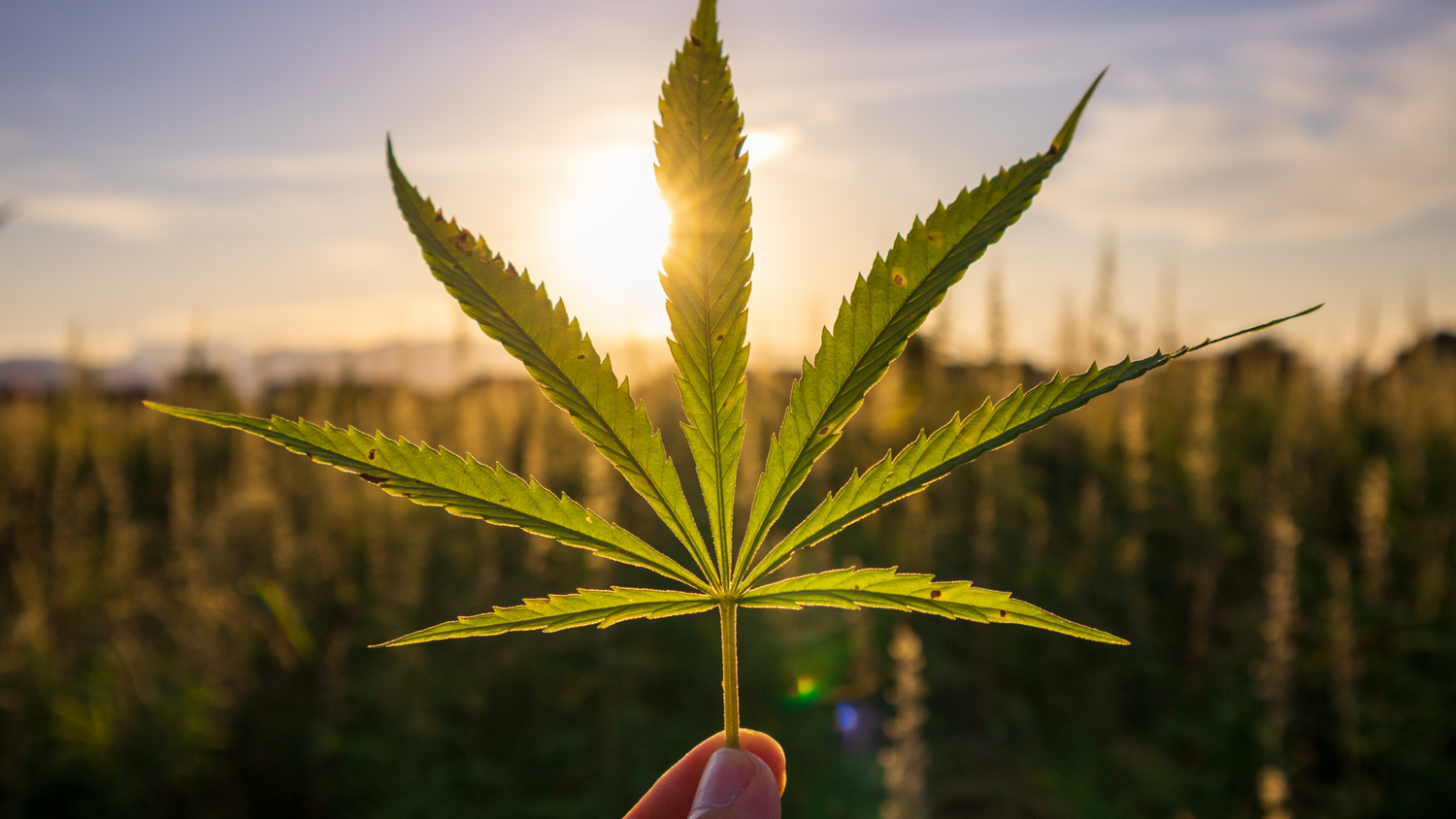By: Wickham Simonds, MD
Dr. Simonds runs Dr. Simonds Metabolics & Weight Loss in the Raleigh-Durham area in North Carolina.
Those who suffer from the disease of obesity will often tell me that months of diet and exercise has been of no use to them. Their efforts resulted in little or no weight loss. The truth is that obesity is a powerful biology and it requires more than just diet and exercise to treat it and overcome it. Prescription medications and high quality supplements are also needed.
The human body has a complex weight regulation system that involves multiple different mechanisms. Prescription anti-obesity medications like phentermine, liraglutide, topiramate, and contrave are examples of prescription medications that work by addressing some of these various mechanisms. One of the heretofore undressed mechanisms that regulates body weight is the endo-cannabinoid system. But, at last, a potential solution has emerged: cannabidiol, or CBD.
I am joined by thought leader and prominent voice in the obesity space, Dr. Wendy Scinta--she is the former President of the Obesity Medicine Association. It’s my pleasure to serve on the organization’s board as a trustee. Collectively, we have a lot to say about our experiences with CBD and its efficacy with patients who use it.
“Diet and exercise,” says Dr. Scinta “are two lay-popular pillars of obesity treatment, yet three other pillars--behavioral modification, pharmacotherapy and in severe cases, surgery—are also important.”
“Adding CBD to physical exercise and nutrition as a powerful adjunct is already becoming popular. I see it every day,” Dr. Simonds says. I treat thousands of patients yearly “a significant number add CBD to their regimen to treat obesity and report less hunger, faster weight loss, and better weight loss maintenance.”
Dr. Scinta adds that the obesity medicine community was disappointed a decade or so ago when a purported miracle weight loss drug—Rimonabant which targeted the endo-cannabinoid system - turned out to have suicide inducing side effects. This resulted in in much disappointment in the medical community. However, CBD is natural and CBD’s safety record is good:
National Institute of Health
“In general, the often described favorable safety profile of CBD in humans was confirmed and extended by the reviewed research. Here, the most commonly reported side effects were tiredness, diarrhea, and changes of appetite/weight.
In comparison with other drugs, used for the treatment of these medical conditions, CBD has a better side effect profile. This could improve patients' compliance and adherence to treatment. CBD is often used as adjunct therapy.”
World Health Organization
“CBD is generally well tolerated with a good safety profile. Several countries have modified their national controls to accommodate CBD as a medicinal product. To date, there is no evidence of recreational use of CBD or any public health-related problems associated with the use of pure CBD."
Mayo Clinic
“Though it's often well-tolerated, CBD can cause side effects, such as dry mouth, diarrhea, reduced appetite, drowsiness and fatigue."
With CBD providing evidenced augmentation to the pillars of obesity treatment, Doctor Scinta and I have organized organized our optimism with these observations:
1. Cannabidiol acts a CB1 receptor antagonist. CB1 agonists (like THC) cause increased hunger and increased adiposity. Cannabidiol displays the opposite effect, most likely accounting for a decrease in hunger in animals treated with cannabidiol.
2. Cannabidiol acts to accelerate the transition of white adipose tissue to brown adipose tissue. The latter is associated with higher metabolic rate, better metabolic parameters, and lower weight.
3. It is now clear that inflammation plays a role in the CNS in the development of obesity. An inflamed weight regulation center in the hypo-thalamus with injury and destruction of neurons is a hallmark feature of this. Peripherally, as excess fat accumulates at various anatomic sites, inflammation becomes a prominent finding. Cannabidiol acts as a potent anti-inflammatory, and it is also known to promote neurogenesis.
4. It is clear that the endocannabinoid system plays a role in glucose and insulin regulation and that cannabidiol has a positive effect on glucose and insulin regulation.
Obesity is a common cause of disease and death in the United States. The use of CBD to augment the pillars of obesity treatment is important potential progress. Penicillin from mold, aspirin from trees, and now CBD from hemp are game changers.
In light of the above points, Doctor Scinta and I have developed relations with CBD provider, Root Bioscience which makes a consumer brand Naternal that meet standards we demand before mentioning them in our metabolic advisories.
Because some CBD manufacturing has a reputation for unreliability and impurity, we created The CBD Trust, the mission of which will be to provide colleagues trustworthy and approved products which will meet the FDA regulations and our more stringent criteria. The CBD Trust could also be a vehicle to encourage—even facilitate—clinical research germane to CBD and weight loss.
How Does CBD Affect Your Weight?
Cannabidiol, more commonly known as CBD, is a molecule that has fantastic anti-inflammatory properties. It is derived from the hemp plant, making it a natural product. It can be used in a variety of different ways to help individuals improve their health and wellness. It can even potentially help people find relief from muscle aches, pains, and may even be beneficial for weight loss.
CBD and Obesity
As previously mentioned, CBD may help improve the lives of those struggling with obesity. To simplify, one of the biggest impacts CBD may have on weight loss is the increase of metabolic parameters.
It is also an excellent anti-inflammatory product, which may benefit people that are overweight by taking pressure off of their joints.. For example, obesity can potentially cause increased muscle and joint pain.
CBD also has the ability to help lessen anxiety and improve your overall mood. Obesity is a disease that several people struggle with. Being overweight not only greatly affects your body physically, but it can also affect your mental health. Obesity can be linked to depression and anxiety. By incorporating CBD, people with obesity may improve their mood, which will, in turn, help them live more positive lives. This could be a beneficial step in the weight loss journey and ultimately toward a healthier life.
Different CBD Options for Obesity
People living with obesity can try a wide range of CBD products, such as topicals or tinctures.
Topicals come in many different forms. We carry a variety of lotions, butter, salves, and muscle rubs. You simply take the desired amount of product and apply it to your body, where you will rub it in, letting the skin absorb the CBD.
Our tinctures are a concentrated liquid herbal extract. It is most easily taken by placing the liquid under the tongue and letting it dissolve.
There are other different ways you can enjoy tinctures, though. For some, they enjoy mixing the liquid into their morning cup of tea or coffee.
Both topicals and tinctures come in varying CBD strengths. When purchasing CBD products, it is important to select the right strength of CBD for you. If you do not know what type of strength you need, start with the smallest strength available and work your way up from there.
It is also important to note that you should only shop from companies that use natural ingredients in their CBD products. When you shop from Naturnal, you are getting high-quality CBD products made from only the highest quality components.
If you or someone you know is struggling with obesity, CBD may be worth considering for your daily regimine. . We never want people to think CBD is a cure-all, but we want to emphasize how excellent this natural product is and how it can help alleviate certain things people can benefit from. To learn more about our CBD products, browse our collections page on our website.
References
1 https://www.ncbi.nlm.nih.gov/pmc/articles/PMC5569602/
2 https://www.mayoclinic.org/healthy-lifestyle/consumer-health/expert-answers/is-cbd-safe-and- effective/faq-20446700
Receptor Antagonism
Pertwee RG. The diverse CB1 and CB2 receptor pharmacology of three plant cannabinoids: delta9- tetrahydrocannabinol, cannabidiol and delta9-tetrahydrocannabivarin. Br J Pharmacol. 2008;153(2):199–215. doi:10.1038/sj.bjp.0707442
Rossi F, Punzo F, Umano GR, Argenziano M, Miraglia Del Giudice E. Role of Cannabinoids in Obesity. Int J Mol Sci. 2018;19(9):2690. Published 2018 Sep 10. doi:10.3390/ijms19092690
Farrimond, J.A., Whalley, B.J. & Williams, C.M. Psychopharmacology (2012) 223: 117. https://doi.org/10.1007/s00213-012-2697-x
Adipocyte Browning Effect
Parray, H.A. & Yun, J.W. Mol Cell Biochem (2016) 416: 131. https://doi.org/10.1007/s11010- 016-2702-5
Appetite Reduction
Farrimond, J.A., Whalley, B.J. & Williams, C.M. Psychopharmacology (2012) 223: 117. https://doi.org/10.1007/s00213-012-2697-x
CNS Inflammation
J Clin Invest. 2017;127(1):24-32. https://doi.org/10.1172/JCI88878.
Neurogenesis
de Oliveira RW, Oliveira CL, Guimarães FS, Campos AC. Cannabinoid signalling in embryonic and adult neurogenesis: possible implications for psychiatric and neurological disorders. Acta Neuropsychiatrica. 2019;31(1):1-16. doi:10.1017/neu.2018.11
Glucose and Insulin Metabolism
Orv Hetil. 2012 Apr 1;153(13):499-504. doi: 10.1556/OH.2012.29308 The Impact of Marijuana Use on Glucose, Insulin, and Insulin Resistance among US Adults Penner, Elizabeth A. et al. The American Journal of Medicine, Volume 126, Issue 7, 583 - 589





